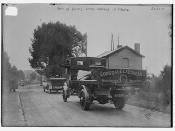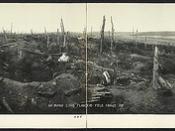Several great American Statesmen were pivotal in shaping and molding the government of the United States. History has since forgotten some of these founding fathers. The ones remembered throughout history are those we hold up for their accomplishments. Thomas Jefferson is one of the American Statesmen that stands out from the rest as being one of the greatest contributors to our present form of government. Historian Robert Tucker described Jefferson's life as being a paradox. He was a slave holder that was not necessarily in favor of this form of servitude. He also associated himself with the yeoman farmer, yet he traveled in company with a cosmopolitan flair. So it is to this President that we look to as he faced one of his greatest dilemmas. Jefferson, the third President of the United States, remembered primarily for two great accomplishments: he authored the Declaration of Independence and made the greatest land acquisition in our nation's history, the Louisiana Purchase.
Both subjects, have been written about extensively, yet one question persists, did Thomas Jefferson exceed his fiduciary duty to the Constitution of the United States when he started the proceedings that led to the Louisiana Purchase? Thomas Jefferson was a pragmatic, articulate, and, at times, capricious leader of a young nation that had recently gained its freedom from the monarchical Great Britain. Jefferson, a Democratic Republican, made his ascension to the presidency at a time when the Federalist Party was in decline. The Louisiana Purchase would bring a great deal of discomfort to the Party. The only opposition to the purchase would consequently be the Federalist Party which, ironically, had always been in favor of a broad construction of the Constitution. The broad constructionist believed that the Constitution held implied powers to the central government. The people who interpreted the Constitution...


![[Opera House staircase, Paris, France] (LOC)](https://s.writework.com/uploads/17/171573/opera-house-staircase-paris-france-loc-thumb.jpg)
Good job
Great job, very well done. I felt like I wa there,
1 out of 1 people found this comment useful.